Serbia and the media: Dušan Mašić memorial service - "Journalism was his way of life"
A memorial was held at Belgrade's Dom omladine for Dušan Mašić, a respected journalist with a long career, who passed away at the age of 56, on January 31, 2022
Monday, 07.02.2022.
21:46
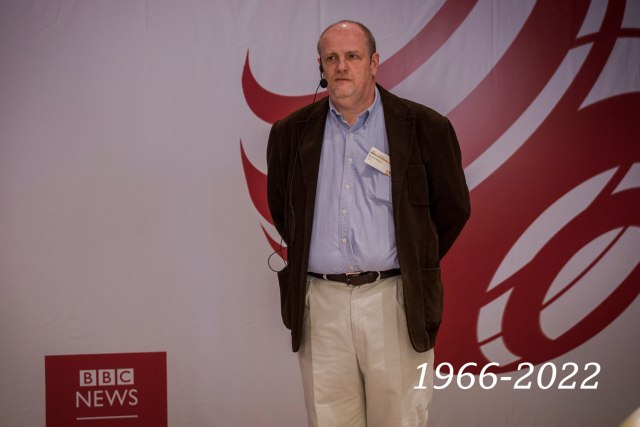
Serbia and the media: Dušan Mašić memorial service - "Journalism was his way of life"
A memorial service was held at Belgrade's Dom omladine for Dušan Mašić, an experienced journalist with a long career at the BBC in London and Belgrade, who passed away on January 31, 2022. He was 56 years old."I had the time of my life", the title song from the film "Dirty Dancing", played at the beginning of the memorial service of Dušan Mašić, symbolically described his life and journalistic career.
He liked to joke, he liked to dance, but above all, he loved journalism - it was "his way of life", as he said. He immeasurably influenced many generations of young journalists, constantly encouraging them: "Come on, come on, you can do it."
Dušan Mašić, an experienced journalist with a long career at the BBC in London and Belgrade, passed away suddenly at the age of 56, on January 31, 2022.
One of the founders of Radio B92, which was one of the most important free media during Slobodan Milosevic's rule and often attacked by the regime, has left a big trace on the Serbian media scene. Masic was also one of the founders of the Independent Association of Journalists of Serbia, the Association of Independent Electronic Media ANEM and the author of the book "Making Waves in Serbia".
At the memorial service held in Belgrade's Dom omladine, on Monday, February 7, his colleagues said goodbye to Masic, with whom they made journalistic bravados in Serbia in challenging times.
Dušan Mašić started working as a journalist in 1989, at the then B92 Youth Radio. He worked as an associate journalist, parliamentary reporter and war reporter, and in the mid-1990s he became one of the recognizable voices of B92 and the editor of the B92 Radio news program.
"It's hard for me to talk about my friendship with Masic in the past, but right now his voice echoes in my head that says to me: 'Come on, come on, you can do it.'
"Well, for me, that is Masic - someone who always believed in me and, accordingly, constantly put me in some professional challenges," says Danica Ilic, a former journalist of Radio B92, now a BBC journalist. Masic taught her, she adds, to make stories about people, not politicians, and to start shows with a topic that no other media has.
"He taught me how to edit and write announcements for a radio report. He said: 'Imagine that the technique dies and there are no clips. Write as you speak and shorten the sentences. It must be clear to everyone."
She says that Masic made her laugh to tears. And she was annoyed when, at one time, he didn't believe that the podcast and Twitter would become a hit in Serbia as well.
"Masic joked that we, the people from Kraljevo, would eventually start a revolution. My good, warm, witty friend - Maške", said Danica Ilic at the commemoration.
B92 was my mission or more precisely - a way of life
Here's an excerpt from Masic's book "Making Waves in Serbia"Every day started the same. Like in that movie "Groundhog Day". Who will make coffee? Who will wash the cups? We cursed those from last night who did not empty the ashtrays and Jasna, the cleaning lady, who always had an excuse why she did not clean the newsroom.
She made various excuses: Veran (Matić) sent her to do something, and there were guests in marketing, and in the end, she pretended to be 'allergic to dust'.
Only B92 could have a cleaning lady allergic to dust. As well as sound technician that "whose ears sweat under the headphones", that's why every time he edits something, he has to "turn the sound on" instead of working with the headphones. People came to work "after ten". A very extensible term. By noon, we seem to gather.
Until Morning News was introduced, but even then, it meant that only one or two of us would hang out with bakers.
When I later had the opportunity to see how other newsrooms work around the world, I realized that we at B92 were nothing like that.
There are no morning meetings and official minutes taken on them, memoranda and evaluations.
The hierarchy within our team ended with the editor of "Daily News", a bogeyman on duty, who delegates "assignments" and takes care that all events are "covered".
And Veran, who in those early stages was constantly looking for someone to get him a beer.
What made B92 different from "normal" stations was the worldview. I do not mean what was seen through the smeared windows of the Belgrade Youth Center, which were probably washed for the last time when the building was opened in the sixties.
No, radio stations in the world mostly exist to make money.
B92 was a "mission", or more precisely - a way of life.
And probably as such, it could not survive anywhere else in the world except in Serbia in the 1990s.
Just as a country like Serbia in the 1990s could not exist anywhere else.
That is why they isolated us and they would only lean over the borders here and there to see if we are still alive.
Yes, we shouted, but they didn't seem to hear us. And maybe they didn't even want to. Editor-in-chief of the BBC News Serbian, Aleksandra Nikšić, said that Dušan would be missed on many grounds - "we'll miss having endless discussions and exchange of arguments, which would result in the best solution at the moment."
"Along with Dejan Anastasijevic, who unfortunately left us earlier, Dusan and I are dinosaurs, we worked at a time when there were no mobile phones. It is this connection, between us - dinosaurs from pre-digital times - and young people who are now part of the BBC's Serbian editorial office, that is the future of what we call journalism."
She ended her address with the words: "Without Dušan, there would be no BBC Serbian desk, and it is up to us to be proud of him and to continue on this path."
Vildana Selimbegović, editor-in-chief of the Sarajevo daily Oslobođenje, recalled a recent episode when some media in Serbia mistakenly announced that Dušan Mašić had passed away. Instead of lawyer Dušan Mašić, they put a photo of journalist Dušan Mašić and announced that "the famous journalist Mašić died".
"Dušan had this habit of jerking me off on Sundays, asking what I was writing about. This time the occasion was different: 'Did you hear that I died? My phone rings all day and people check!'
"When he told me the details of his digital death, which - as only he could have done - turned it into an anecdote, I suggested that he uses the story as a demonstration exercise for fake news. "Think about it," I said. "How far has it all gone when people are calling to check the news of their deaths".
When he came to Sarajevo shortly afterwards, he told me from the doorstep: "You were wrong, it's not fake news: the news is actually true, but it's premature."
Vildana will also remember Dušan as someone who knew how to relax tension, to joke "even when I was on the verge of tears".
"And he always managed to make me laugh. He enjoyed the debates, provoked discussions and knew the answers to unasked questions". "He poured out of his sleeve the information that sometimes made me joke that he was peeking into the old editions of Politika's Zabavnik again, and he replied: 'Of course, I'm not going to read two-volume literature!'"
She pointed out that Dušan was "known among his friends as an encyclopedia" and "a treasure trove of knowledge that he generously squandered".
"He loved Belgrade, with that selfless dedication that is only possible when it comes to home".
"Dusan was surely making waves in Serbia. He couldn't have titled the book he wrote better. His life was dedicated to the following goal: improve society through the radio waves".
"And the waves did not stop in Belgrade and Serbia. Once they start, the waves can no longer calm down," says Vildana Selimbegović.




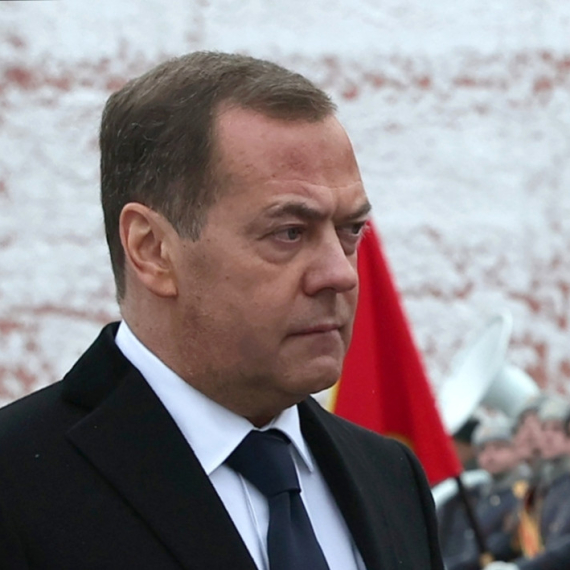

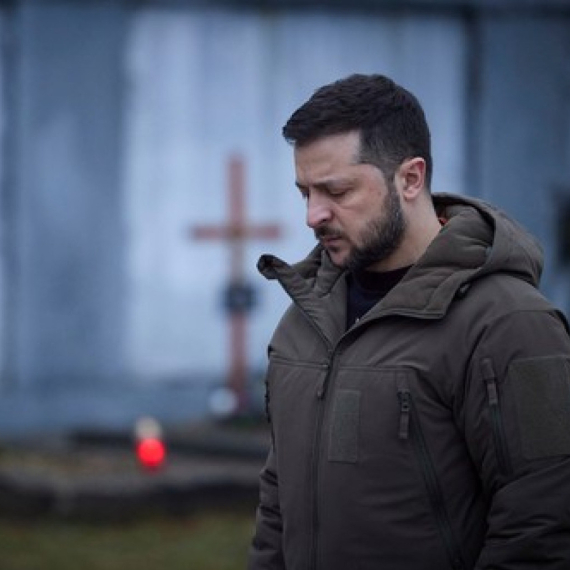
































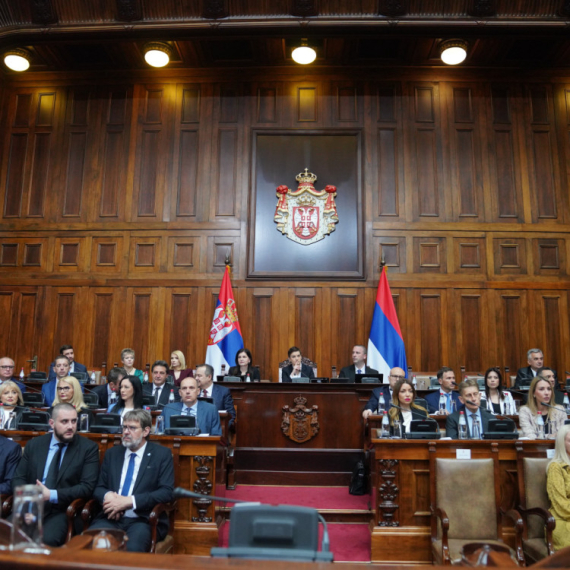













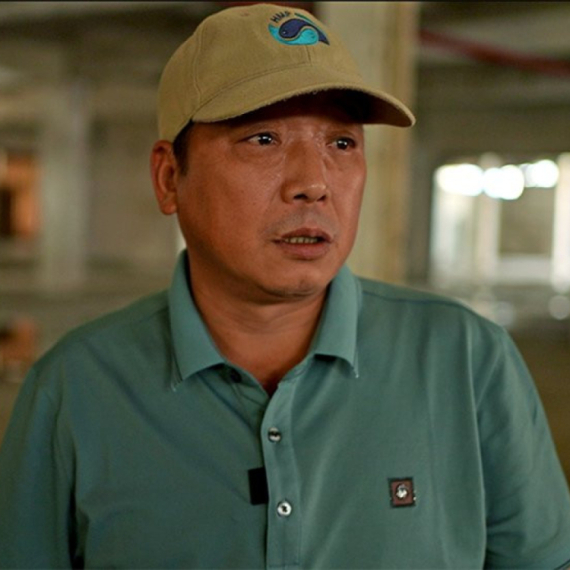



Komentari 0